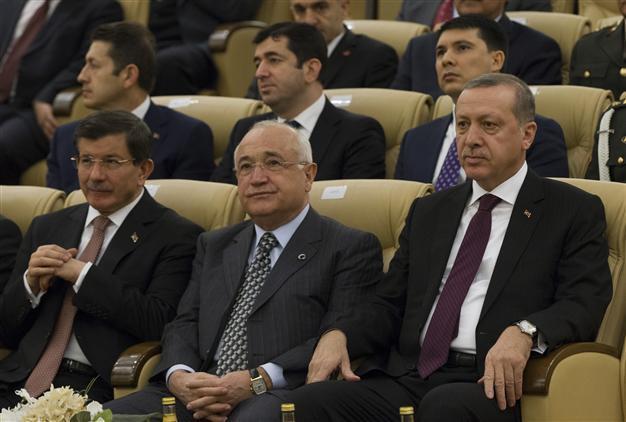Turkish government postpones transparency package after Erdoğan’s intervention
ANKARA

AA Photo
The ruling Justice and Development Party (AKP) has postponed the passage of a new transparency package until after the coming election, following an intervention from President Recep Tayyip Erdoğan, daily Hürriyet has reported, in another indication of a rift between the prime minister and the president.The decision to postpone the implementation of the package was made during a meeting of the AKP’s central decision-making body on Feb. 3, only two weeks after Prime Minister Ahmet Davutoğlu disclosed the content of the package at a press conference in Ankara.
“It was obvious that there was not sufficient time for the legislation of the package,” Customs and Trade Minister Nurettin Canikli said, confirming the AKP’s decision in an interview with private broadcaster NTV on Feb. 6. According to Canikli, the decision for the postponement is not related to the content, but because parliament will go on recess in a few months ahead of the June elections.
Just a day after Davutoğlu outlined the “Program for Transparency in Public Administration,” Erdoğan held a private meeting with AKP members in the absence of the prime minister, during which he dished out harsh criticism about a number of the party’s policies, including the transparency package.
“We already passed in 2010 some of the regulations that were revealed with the transparency package,” Erdoğan reportedly said at that meeting. “The timing and content of such a regulation is very important and I don’t find it correct before an election.”
Davutoğlu’s transparency package included compulsory asset declaration for deputy parliamentary group chairs, executives at the headquarters of political parties, provincial and district-level political party executives and executives of radio and television channels that broadcast to national, regional or local areas. The president and the members of the top courts, as well as the heads of chambers of these courts, would also have been accountable for asset declaration, which they would have filed to the Parliament Speaker’s Office.
















